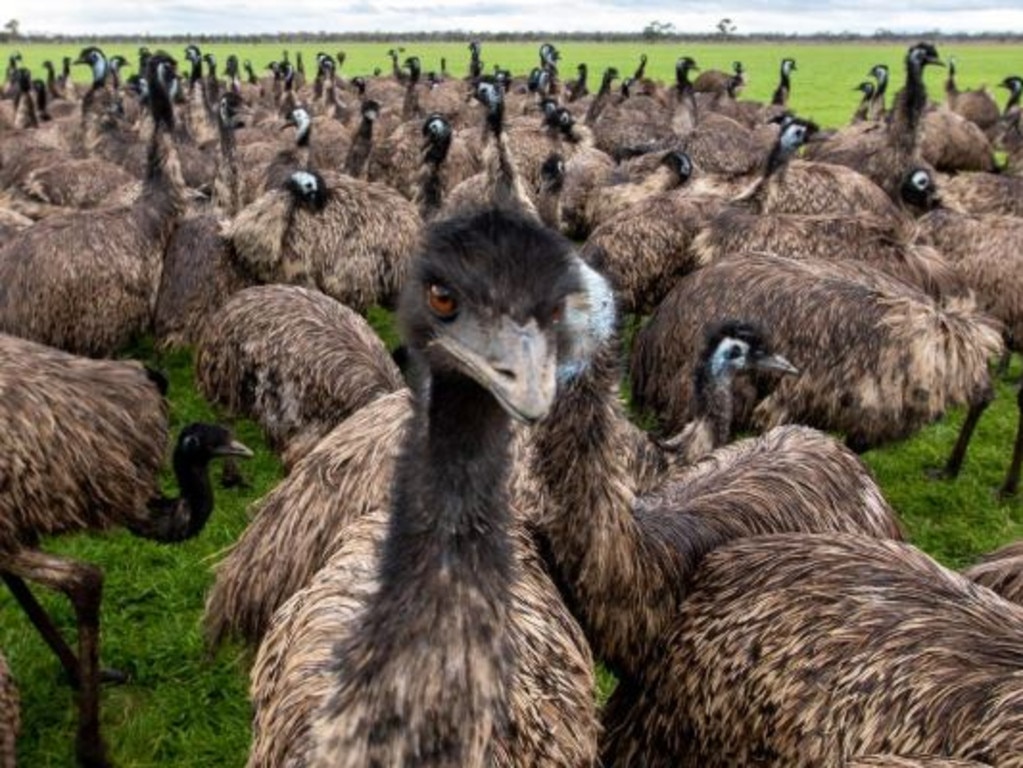Bird flu Victoria: Chickens, emus culled after influenza outbreak
Vets will spend the next two days culling thousands of emus and chickens after a bird flu outbreak in regional Victoria.
Thousands of emus and chickens will be killed after an outbreak of bird flu in regional Victoria.
Veterinarians from Agriculture Victoria are on the farm in Kerang, three hours north of Melbourne, to euthanise the emu chicks.
The dramatic move came after 200 birds came down with avian influenza earlier this week, spreading to the emu farm in Kerang and an egg farm in the Golden Plains Shire.
The detection of bird flu at the two new farms takes the total number of affected farms to six, since the first farm detection on July 31.
“The H7N7, H7N6 and H5N2 types of the virus are not a risk to the public as it rarely affects humans, unless there is direct and close contact with sick birds. Properly cooked poultry products including chicken and eggs are safe to eat,” Agriculture Victoria advised.

Victoria’s chief veterinary officer Dr Graeme Cooke said Agriculture Victoria was acting swiftly to contain the outbreaks.
“The Golden Plains egg farm has been placed under quarantine after being confirmed as having high pathogenic H7N7 avian influenza. It has about 37,000 birds on site within the existing Restricted Area.”
Agriculture Victoria has been undertaking regular surveillance at the property as part of its response.
“Agriculture Victoria will undertake the appropriate actions to depopulate and decontaminate the site,” Dr Cooke said.
The emu farm near Kerang reported sick birds to Agriculture Victoria and subsequent testing has confirmed low pathogenic H7N6 avian influenza.
The farm, which has around 8000 emus, is under quarantine and authorities have agreed to send the remaining emu eggs to a different farm where they will stay under surveillance and hopefully be born influenza-free.

Agriculture Victoria said the two different outbreaks were not linked.
“Thank you to the property owners who notified us quickly when they noticed sick birds,” Dr Cooke said.
“Avian influenza viruses occur naturally among wild birds and can be difficult to detect as they may not show signs but can cause infections in our domestic bird populations.
“These detections are a reminder for bird owners to be vigilant: follow restrictions and movement controls for Restricted and Control Areas, monitor your birds’ health, and have in place best biosecurity practices at your property.”
The six farms affected by the disease include three in Golden Plains Shire, all confirmed to have high pathogenic H7N7 avian influenza, and three with the low pathogenic strain with one in Golden Plains Shire, one in Bairnsdale and the emu farm in Kerang.
Bird flu is a highly contagious disease that predominantly affects chickens, ducks, geese, turkeys, guinea fowl, quail, pheasants and ostriches.
While wild birds can typically carry the virus without symptoms, the disease can occasionally spread to domesticated birds, causing significant death.
Agriculture Victoria is calling on locals around the Golden Plains Shire, Kerang and Bairnsdale to report any sick birds.



